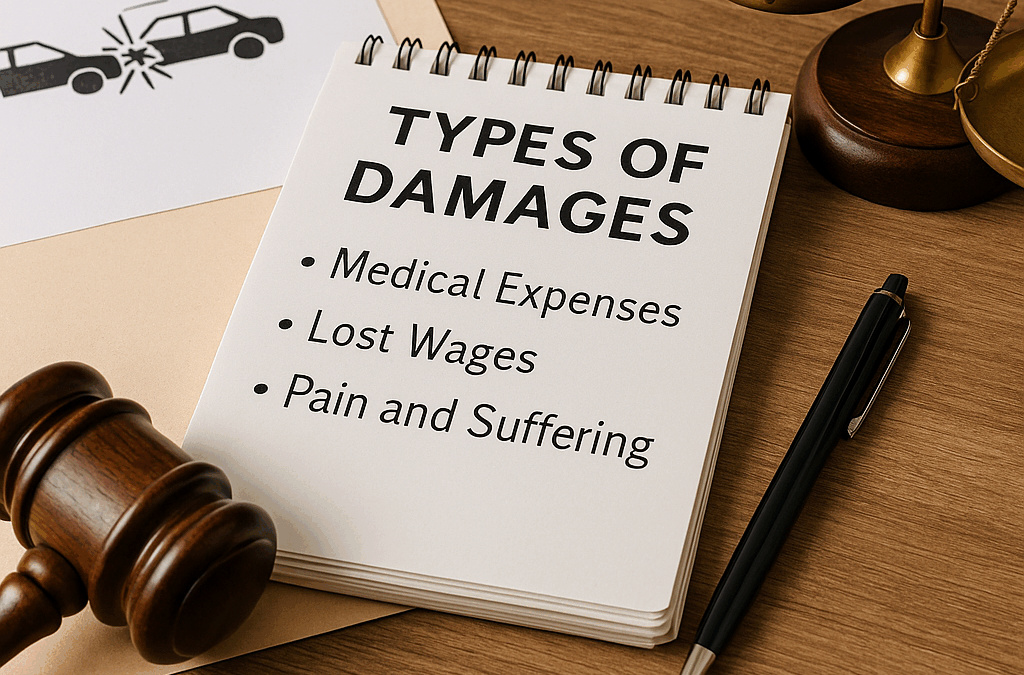After an accident, most people understandably focus on their medical expenses first. They want to know: “Who’s going to pay for my ER visit, my surgery, my physical therapy?”
But under Georgia law, you may be entitled to much more than that.
Personal injury damages are meant to fully compensate you for all the ways the accident impacted your life — financially, physically, and emotionally.
Let’s break it down.
Compensatory Damages: The Core of Most Cases
In personal injury law, compensatory damages are the most common. These fall into two categories:
1. Economic Damages (a.k.a. “Special Damages”)
These are the quantifiable financial losses you’ve suffered:
- Medical expenses
Past, current, and reasonably expected future medical costs related to your injury. - Lost wages
Income lost because you missed work due to your injury. - Loss of earning capacity
If your injury affects your ability to work in the future, this can be compensated. - Property damage
For example, vehicle repairs after an auto accident.
2. Non-Economic Damages (a.k.a. “General Damages”)
These are more subjective losses that impact your quality of life:
- Pain and suffering
Compensation for physical pain caused by your injury. - Emotional distress
Compensation for anxiety, depression, PTSD, or other mental/emotional effects. - Loss of enjoyment of life
When an injury prevents you from doing things you once loved (sports, hobbies, etc.). - Loss of consortium
Compensation to your spouse for loss of companionship, affection, or intimacy due to your injury.
Non-economic damages are often the hardest to calculate — but they are often a substantial part of serious injury settlements.
Punitive Damages: Reserved for Extreme Cases
In rare cases, Georgia law allows for punitive damages. These are not meant to compensate you — they’re meant to punish the wrongdoer and deter similar conduct.
Punitive damages may be awarded if the defendant acted with:
- Willful misconduct
- Malice
- Fraud
- Wantonness or conscious indifference to consequences
Example: A drunk driver with a history of DUIs who causes a serious crash might trigger punitive damages.
How Are Damages Calculated?
Calculating damages isn’t an exact science — but a good personal injury attorney will know how to build a strong case for every type of compensation you deserve.
They’ll rely on:
- Medical records
- Pay stubs and employment records
- Expert testimony (medical, economic, psychological)
- Your personal testimony about how the injury has affected your life
This is why hiring the right lawyer matters — they’ll make sure no damages are overlooked or undervalued.
Final Thought: Know What You’re Entitled To — Then Go Get It
Many accident victims leave money on the table simply because they don’t understand the full value of their case.
You deserve to be made whole — and that means recovering compensation for all of your losses, not just the obvious ones.
Click here to schedule your free consultation with Catherine Verdery Ryan, Attorney at Law.
We’ll fight to make sure every dollar you’re entitled to is accounted for — and pursued with skill and determination.

